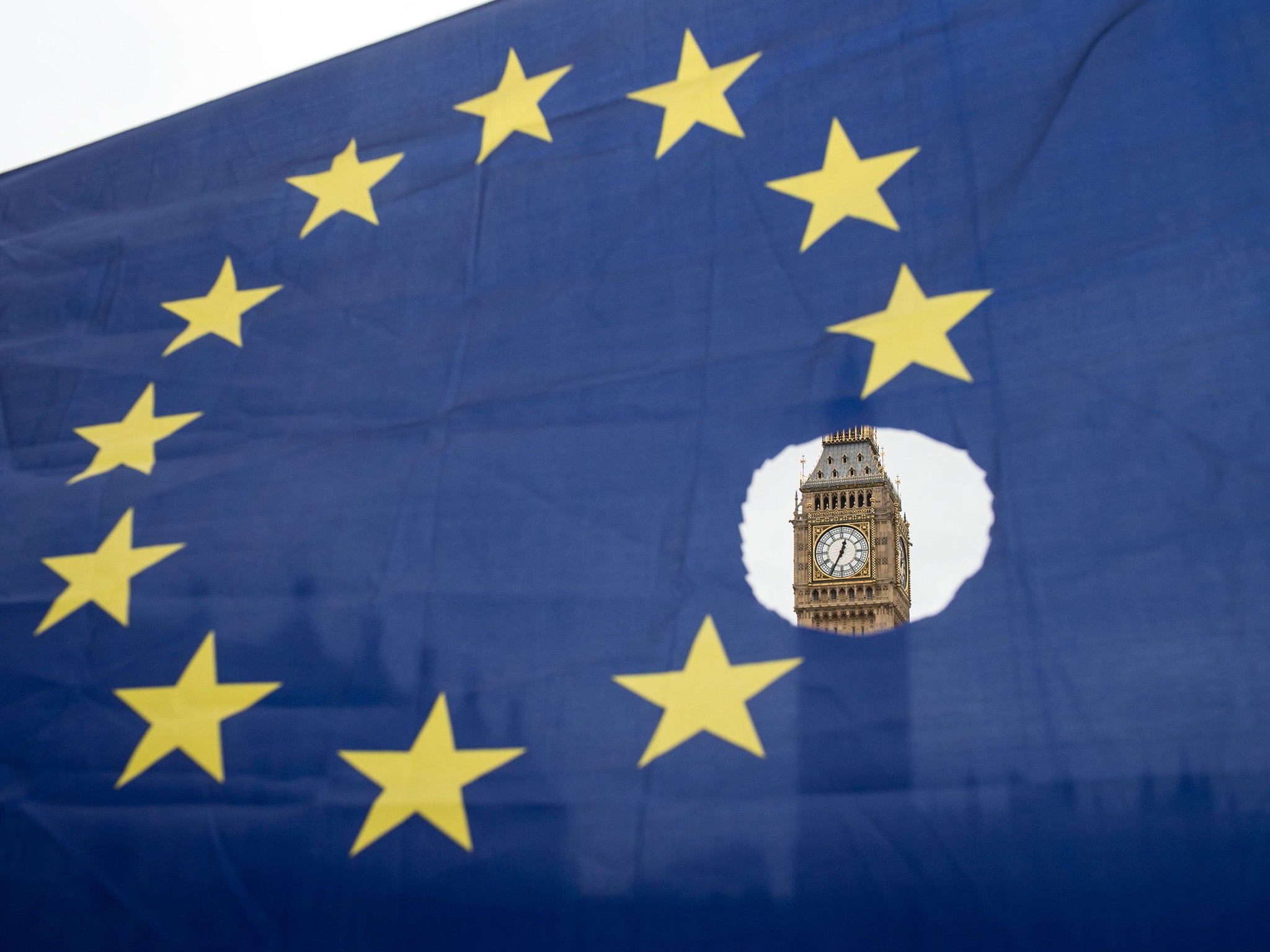It's been one year since the Brexit vote – and the strain on people's mental health is becoming apparent
The risk of Brexit is generating daily distress for families – including mixed families, where British children are now being threatened with the expatriation of their mother or father


Your support helps us to tell the story
From reproductive rights to climate change to Big Tech, The Independent is on the ground when the story is developing. Whether it's investigating the financials of Elon Musk's pro-Trump PAC or producing our latest documentary, 'The A Word', which shines a light on the American women fighting for reproductive rights, we know how important it is to parse out the facts from the messaging.
At such a critical moment in US history, we need reporters on the ground. Your donation allows us to keep sending journalists to speak to both sides of the story.
The Independent is trusted by Americans across the entire political spectrum. And unlike many other quality news outlets, we choose not to lock Americans out of our reporting and analysis with paywalls. We believe quality journalism should be available to everyone, paid for by those who can afford it.
Your support makes all the difference.Martha has lived in London for 26 years, was married to a Brit for twelve of those, and is now divorced and lives with her three children in a small flat. She runs a childminding service for the local community. Martha is from Germany and originally came to the UK to protest at Greenham Common. She has a criminal record from being at a protest, and so cannot obtain permanent residence or UK citizenship. She has now been told by the Home Office to make plans to go “home”.
In Germany, Martha has no family, no job and no home.
It is inconceivable that we are allowing our government to treat people in this way, people whose contribution has been welcome for decades. When people say: “we have to look after our own citizens first”, we are forgetting that the EU citizens who put their roots down here in good faith, are now as much our citizens as anyone else. We cannot undo history and un-weave our connections to the continent. But there is a real risk that Brexit will be used as an excuse to change all the rules without care or thoughtfulness. That risk is generating daily distress for families – including mixed families like Martha’s, where British children are now being threatened with the expatriation of their mother.
Martha has been depressed since the referendum, like many other EU nationals I speak to. She has found people around her starting to treat her as if she is an undesirable, and often she feels like hiding. There are a few kind friends who are fighting for her rights with her, but others have turned their backs on her. Martha feels that the world has become unreliable and hostile. She feels troubled and constantly worries about the future of her children. She has even been told that she can no longer use the NHS, when this was always an acquired right that she took for granted. She is now apparently supposed to have comprehensive sickness insurance (CSI) because some years ago the government started interpreting European regulations in a different way. They now expect private health insurance from EU citizens who are not in full time employment. Martha cannot afford this and had never been told about it.
The demand for CSI is now being contested by MEPs, but it is not the only issue. Even if EU citizens are offered their “rights”, many will be left out and forgotten in these arrangements. Groups such as New Europeans, Migrant Voice, Migrants Rights Network and the3million are providing representation and campaigning skills to EU nationals fighting to retain the rights they were granted. But people like Martha need more than that; they need someone to talk to about the personal distress this upheaval is causing, and remind them that it is not a reflection on them.
This is why we have set up an initiative between the Existential Academy and New Europeans with support from the Society of Psychotherapy, to provide a space in which people can find calm and professional support. A space where people can speak about their fears openly, to soften the impact of the loss of security, and loss of respect they have been confronted with. It is a way to ensure that they don’t have to endure their despair in silence.
One year on from the EU referendum, and as negotiations begin, it’s time to tackle the confusion and anxiety that too many of our friends and neighbours are feeling. There will be public campaigning to do, but there will also need to be places where Martha and others like her can open up and find their strength. It is vital for them to stop suppressing their anger and disappointment. People who have built lives here are now living in fear for their jobs, their homes, their families and their futures. That requires serious political solutions, but it also means a helping hand of kindness must be provided, so those affected can support each other, maintain their dignity and renew their faith in our society.
ESSE: Emotional Support Service for Europeans is an initiative of the Existential Academy and New Europeans. The service is online-based and is staffed by volunteers, all of whom are registered psychotherapists with a commitment to helping EU citizens affirm their rights and find dignity.
Join our commenting forum
Join thought-provoking conversations, follow other Independent readers and see their replies
Comments